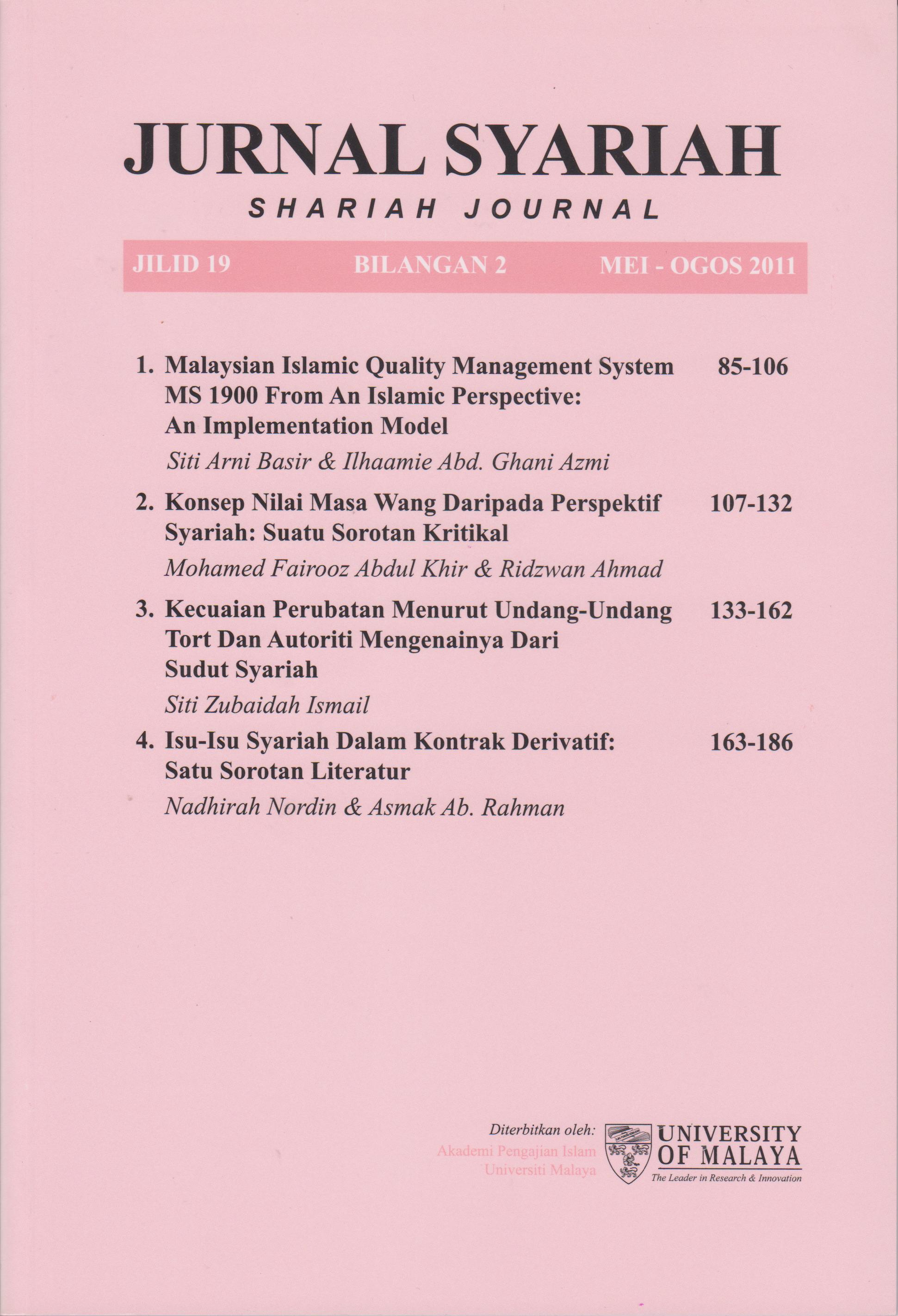KONSEP NILAI MASA WANG DARIPADA PERSPEKTIF SYARIAH: SUATU SOROTAN KRITIKAL
The Concept of Time Value of Money From Shariah Perspective: A Critical Review
Keywords:
Time value of money, al-‘ajal, al-ziyadah, da‘ wa ta‘ajjal, bay‘ al-murabahahAbstract
The concept of the time value of money remains a matter of debate among Muslim scholars as it is perceived to provide justification for riba. The perceived opening for riba is that the exchange of time for money will end with money begetting money. This would corrupt the traditional function of money as a means of purchasing goods because money is not something intended for itself. However, this research proves that the classical jurists in their scholarly writings discussed whether time can be given a counter value and ruled that it can. It is also found that contemporary scholars have explained this concept in the context of its application to modern financial activities conducted in a dual banking system. Even though they have been able to prove substantially the time value of money in financial transactions, there are several aspects of time value of money which have not yet to be explained in depth, such as the parameters for its application in Islamic finance. Hence, a critical review of the literature on it needs to be done to identify the aspects of the time value of money that require further examination. Library methods as well as analytical methods are employed to thoroughly examine the views of the Muslim jurists on the concept of the time value of money in financial transactions.
Downloads
Downloads
Published
How to Cite
Issue
Section
License
COPYRIGHT: All rights reserved. Not allowed to be reproduced any part of articles and contents of this journal in any form or by any way, whether electronic, mechanical, photocopying, recording or otherwise without permission in writing from the Chief Editor, Jurnal Syariah.











